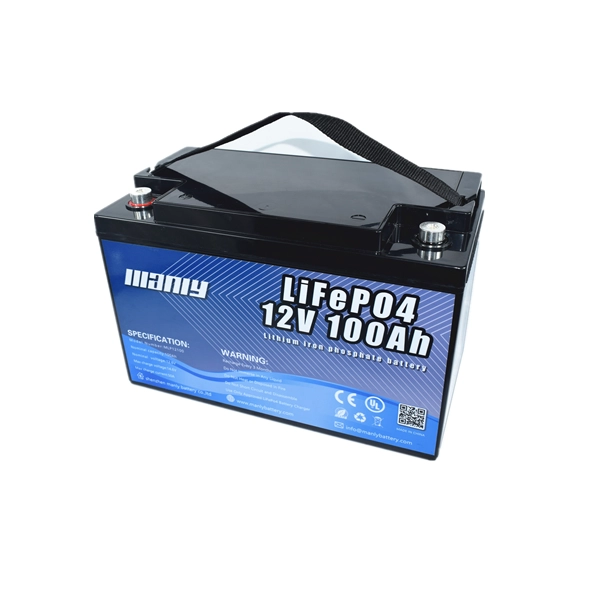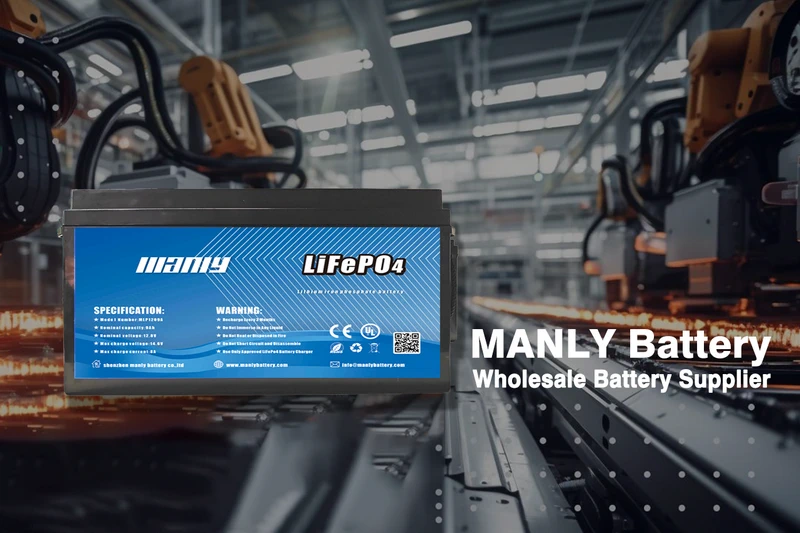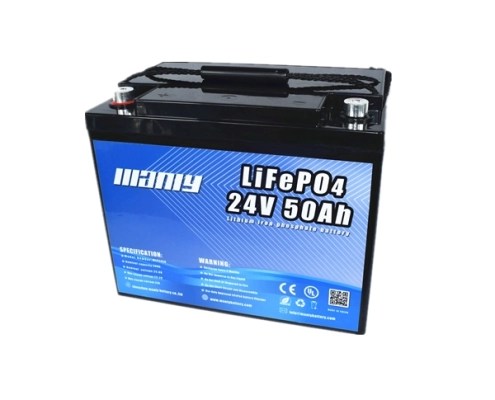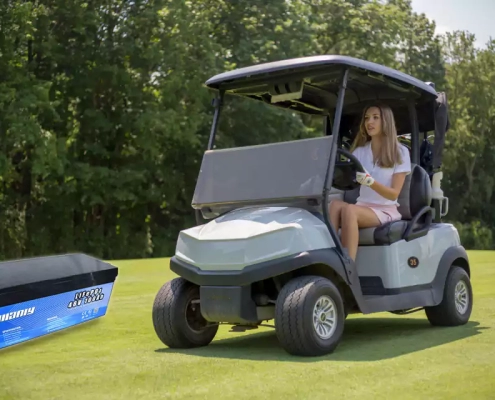Can You Mix Different Brands of LiFePO4 Batteries
Table of Contents
You can mix different brands of LiFePO4 batteries, but it is not recommended. While this approach might seem convenient, it often leads to inefficiencies, reduced lifespan, and safety risks. Many customers mix batteries not only to save money but also to avoid wasting old batteries that still seem functional. However, this choice usually results in higher costs over time due to faster degradation and potential performance issues. Instead, buying new batteries directly from trusted manufacturers like MANLY Battery offers a cost-effective and reliable solution. By purchasing high-quality batteries at wholesale prices, you eliminate middlemen and ensure consistent performance. Recycling old batteries not only helps the environment but also paves the way for a seamless transition to advanced, long-lasting power systems tailored to your needs.
How to Safely Mix Different Battery Brands of LiFePO4 Batteries
Mixing different brands of LiFePO4 batteries can be a practical solution in some scenarios, but it requires a clear understanding of safety protocols and technical specifications to ensure a reliable and secure setup. Here are detailed steps to safely connect batteries from different manufacturers:
Match Key Specifications
The first step to safely mixing LiFePO4 batteries is ensuring that their key specifications align. This includes:
- Voltage Matching: All batteries must have the same nominal voltage to avoid voltage imbalances that could damage the batteries or connected devices.
- Capacity Matching (Ah): Choose batteries with similar amp-hour ratings to ensure consistent charging and discharging rates. For instance, pairing a 100Ah battery with a 50Ah battery can cause overuse of the smaller unit, shortening its lifespan.
- Chemistry Consistency: Confirm that all batteries use LiFePO4 chemistry. Mixing different chemistries can lead to compatibility issues and safety hazards.
Use a Battery Management System (BMS)
A high-quality Battery Management System (BMS) is essential when mixing different brands. The BMS acts as a safeguard to ensure:
- Proper balancing of charge and discharge cycles across all batteries.
- Protection against overcharging, over-discharging, and short circuits.
- Monitoring of voltage, current, and temperature to prevent unsafe conditions.
When connecting mixed-brand batteries, ensure the BMS is capable of handling multiple units and can compensate for minor differences in internal resistance.
Test for Compatibility
Before committing to a mixed setup, perform thorough testing to verify compatibility:
- Voltage Matching Test: Measure the open circuit voltage of all batteries. If they vary significantly (e.g., by more than 0.1V), equalize them using a controlled charging process before connecting.
- Load Testing: Simulate real-world conditions by applying a consistent load to the battery pack. Observe whether all units discharge evenly.
- Thermal Monitoring: Check for excessive heat generation during charging or discharging. Uneven temperatures can indicate incompatibility.
Adopt Safe Connection Methods
The way you connect batteries plays a crucial role in maintaining safety and performance:
- Parallel Connections: Batteries connected in parallel must have the same voltage. Use high-quality cables and ensure secure crimping to avoid loose connections, which can lead to overheating.
- Series Connections: For series setups, batteries must have the same capacity (Ah) to prevent one unit from overcharging or over-discharging.
- Fuse Protection: Install fuses or circuit breakers for each battery to protect against short circuits and overcurrent situations.
Account for Environmental Factors
Environmental conditions can influence the performance and safety of mixed-brand LiFePO4 batteries:
- Temperature Sensitivity: Some batteries lack low-temperature charging protection. In cold climates, use a BMS with thermal management features to prevent lithium plating.
- Charge Rates: Ensure that the charging rate aligns with the capacity of the smallest battery in the setup to avoid overloading.
Regular Maintenance and Monitoring
Even with matching specifications and a BMS, mixed setups require regular monitoring to ensure ongoing safety:
- Periodically check the health of individual batteries.
- Use tools to measure internal resistance and capacity over time.
- Address any performance discrepancies promptly to prevent damage.
By following these steps, it is possible to safely mix different brands of LiFePO4 batteries. However, understanding the limitations and potential risks is essential. In the next section, we will explore why mixing is generally not recommended, even when safety measures are in place.
Why Mixing LiFePO4 Battery brands Are Not Recommended
Although it is technically possible to mix different battery brands of LiFePO4 batteries, doing so is fraught with challenges and risks that can compromise performance, safety, and longevity. Below, we detail the reasons why mixing these batteries is generally not advised.
Performance Inefficiencies
Mixing batteries from different battery brands often leads to significant performance issues. Consider the following scenarios:
- Voltage Variations: Batteries with different nominal voltages cannot discharge uniformly. Higher-voltage batteries will be forced to match the lower-voltage units, creating undue stress that can damage the cells over time.
- Capacity Mismatches: When batteries with different amp-hour ratings are combined, the smaller-capacity batteries deplete more quickly. This imbalance reduces the overall efficiency of the battery system and can lead to over-discharge of the weaker batteries, causing permanent damage.
- Internal Resistance Differences: Manufacturing differences among battery brands mean that internal resistances may vary. Higher resistance in some cells can limit their current flow, reducing the total output of the system.
Safety Risks
Mixing LiFePO4 batteries can pose serious safety hazards, including the following:
- Overcharging and Overdischarging: When batteries with different capacities or internal characteristics are connected, some batteries may overcharge or overdischarge. Overcharging can lead to overheating, while overdischarging can permanently damage the batteries.
- Short Circuits and Thermal Runaway: Incompatibilities between batteries can increase the likelihood of electrical faults, potentially causing short circuits or thermal runaway. These scenarios can result in overheating or, in extreme cases, fires.
- Load Distribution Issues: Differences in physical construction, such as cylindrical versus prismatic designs, can result in uneven load distribution. This inconsistency further increases the risk of mechanical or thermal failure.
Reduced Lifespan
When mixing batteries, the stronger batteries are forced to compensate for the weaker ones. Over time, this compensation accelerates the degradation of the stronger batteries, leading to a shorter lifespan for the entire pack. Additionally:
- BMS Inefficiencies: Battery Management Systems (BMS) are designed to monitor and protect uniform battery packs. Mixed setups can confuse the BMS, leading to improper balancing and increased wear on all cells.
- Uneven Aging: Batteries age differently based on usage and chemical composition. Combining old and new batteries can strain older units, further shortening their lifespan.
Charging Challenges
Charging a mixed pack of LiFePO4 batteries is as problematic as discharging. Consider these key points:
- Uneven Charging: Batteries with different capacities or internal resistances may not charge evenly. Some may overcharge while others undercharge, reducing the overall efficiency of the system.
- Parallel Charging Considerations: In rare cases, batteries with identical voltages but different capacities can be charged in parallel. However, even in this scenario, performance is suboptimal compared to a uniform pack.
Impact on Equipment
Mixed battery packs not only impact their own performance but can also damage the devices they power. For example:
- Inconsistent Output: Uneven discharge rates result in unstable voltage and current output, which can harm sensitive electronics.
- Increased Maintenance: The need to constantly monitor and balance mixed batteries increases the complexity and cost of maintenance.
Real-World Examples
Let\u2019s use a practical analogy: think of a mixed battery pack as a team with members of different strengths and speeds. If one team member is slower, the entire team must adjust its pace to match, reducing overall performance. Similarly, weaker batteries in a mixed pack limit the performance of stronger ones, creating inefficiencies and risks.
For example:
- Charge Time Differences: Some batteries may require 10 minutes at 14.4V, while others need 20 minutes at 14.6V. These discrepancies stress the BMS and reduce the effectiveness of the entire system.
- System Imbalances: In a mixed system with different brands, one battery may wear out faster than others, causing imbalances that impact safety and efficiency.
Manufacturer Guidelines
Most manufacturers explicitly advise against mixing LiFePO4 batteries from different battery brands or models. This is because manufacturing processes, materials, and designs vary, leading to inconsistencies that can compromise the pack.
Why New LiFePO4 Batteries Are Better Than Mixing Battery Brands
For customers considering LiFePO4 batteries, choosing the right place to purchase is crucial to ensure quality, reliability, and long-term savings. Many opt to mix old and new batteries or combine different battery brands to save money, but this often results in additional costs due to reduced lifespan and performance. A better solution is to buy high-quality batteries from trusted manufacturers like MANLY Battery, where you can enjoy direct pricing and tailored solutions.
The Risks of Mixing Old and New Batteries
One common reason customers mix batteries is to avoid discarding older units that still function. However, this approach can lead to several issues:
- Shortened Lifespan: Mixing old and new batteries forces the newer units to work harder to compensate for the weaker performance of the older ones. This imbalance shortens the lifespan of all connected batteries.
- Increased Costs: While it may seem economical at first, the faster degradation of batteries results in frequent replacements, ultimately costing more than buying a new, reliable pack upfront.
- Safety Concerns: Old batteries may have higher internal resistance, causing overheating or uneven charging in a mixed setup. These risks can compromise safety and system reliability.
Instead of mixing batteries, a smarter option is to invest in reliable products from a reputable manufacturer like MANLY Battery.
Advantages of Buying Directly from Manufacturers
When you buy products directly from manufacturers, such as MANLY Battery, you gain several advantages:
- Lower Prices: Direct purchases reduce markup costs associated with third-party retailers like Amazon.
- Bulk Order Discounts: For business wholesale buyers, manufacturers often offer competitive pricing for large orders.
- Consistent Quality: Manufacturers ensure that all products meet strict quality control standards, reducing the chances of defects or inconsistencies.
Why Choose MANLY Battery?
MANLY Battery is a leading name in the LiFePO4 battery industry, offering premium products directly from the manufacturer. Here are some reasons to consider MANLY for your next battery purchase:
- Direct from Manufacturer Savings
Buying directly from MANLY Battery eliminates middlemen, providing significant cost savings. You get high-performance batteries at wholesale prices, ideal for both individual users and business wholesale buyers. - Tailored Battery Solutions
MANLY Battery offers custom options for voltage, capacity, and even design. Whether you need batteries for solar energy storage, golf carts, or industrial robots, MANLY can create a solution tailored to your exact needs. - Proven Reliability
MANLY batteries are globally recognized with certifications such as UN38.3, UL, and CE, ensuring top-tier quality and safety. Additionally, their batteries are designed to withstand extreme temperatures and impact, making them a durable choice for demanding applications. - Innovative Features
Modern features like Bluetooth connectivity and battery level displays enhance user experience, providing real-time insights into performance and status. - Eco-Friendly Approach
By purchasing new batteries and recycling old ones, customers contribute to environmental sustainability. MANLY encourages recycling programs that ensure old batteries are disposed of responsibly, minimizing environmental impact.
Making the Switch to MANLY Battery
Choosing MANLY Battery means not only accessing premium LiFePO4 batteries but also enjoying long-term cost savings, safety, and performance. Instead of risking the inefficiencies of mixed setups, you can:
- Replace old batteries with high-quality MANLY products.
- Take advantage of direct manufacturer pricing for affordable solutions.
- Participate in recycling programs to responsibly dispose of used batteries, helping protect the environment.
Conclusion
Choosing the right LiFePO4 battery can significantly impact the performance and safety of your energy system. While mixing old and new batteries or combining different battery brands may seem convenient, it often results in higher costs and reduced efficiency over time. Instead, purchasing reliable batteries from reputable manufacturers like MANLY Battery ensures you get premium quality, customized solutions, and long-term value. By recycling your old batteries and investing in high-performance new ones, you not only save money but also contribute to a greener future. Make the switch today and experience the benefits of a reliable, sustainable, and cost-effective power solution.







